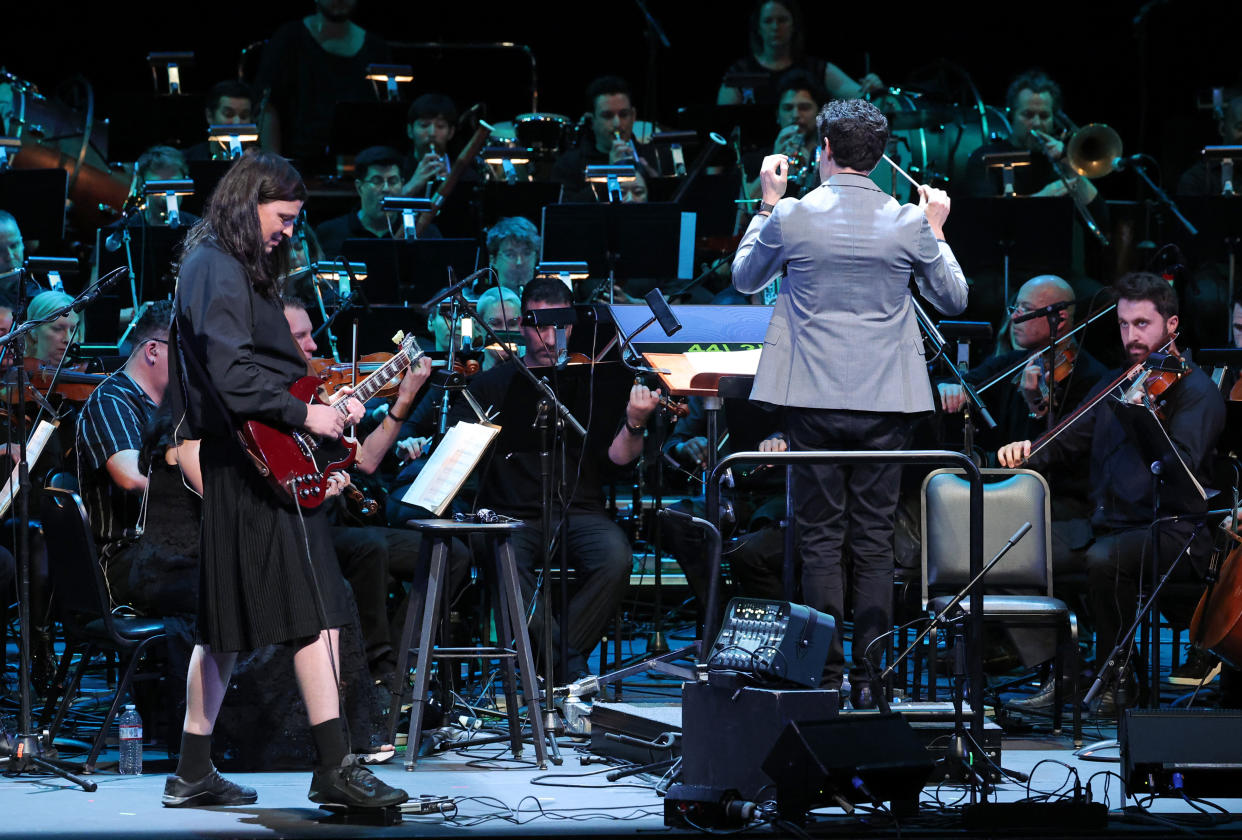‘Monarch: Legacy Of Monsters’ Composer Leopold Ross On Creating Monster Hits For Godzilla Series – Sound & Screen TV

How do you score an ecological, apocalyptic threat like Godzilla? This was one of many questions on the mind of Apple TV+’s Monarch: Legacy of Monsters composer Leopold Ross.
While sitting down to for a conversation at Deadline’s Sound & Screen Television live-music event, Ross opened up about his excitement and worries about what it took to score Apple TV+’s kaiju-based series. When showrunner and executive producer Chris Black first approached the in-demand Ross, he instantly knew it was an offer he couldn’t refuse.
More from Deadline
“He [sent] me the first footage and I’m watching the show like, f*cking hell, that’s Godzilla.” Ross recalled. “It gave me a burst of adrenaline and I went on a tear of writing. It was pressure and also excitement. Godzilla is a screen icon. Everybody in the world knows who Godzilla is, so the idea that I would have an opportunity to create some kind of thematic element that would live in his cannon was super exciting.”
The series follows the aftermath of the thunderous battle between Godzilla and the Titans that leveled San Francisco. This shocking revelation that monsters are real leads two siblings to follow in their father’s footsteps to uncover their family’s connection to the secretive organization known as Monarch. Clues lead them into the world of monsters and ultimately down the rabbit hole to Army officer Lee Shaw (played by Kurt Russell and Wyatt Russell), taking place in the 1950s and half a century later where Monarch is threatened by what Shaw knows. The dramatic saga spanning three generations reveals buried secrets and the ways that epic, earth-shattering events can reverberate through our lives.
Ross explained that though the story examines the origins and effects of the big bad kaiju in a way never before seen on screen, the true story lies in the heart of the show’s humanity.
“I think it was smart on the writers’ behalf to make it a human story,” said Ross. “Because I think the risk with a big monster show is you can’t just have monsters all the time, especially if it’s 10 hours long. So they made a smart decision to really build this intricate family story. There’s a lot of unresolved emotions that are being resolved throughout the show. So it’s kind of within the music, I was able to create little themes and melodies, and then depending on how I’m voicing them, leave them unresolved or all resolved depending on the situation.”
OK, but how does one score the chaos and destruction that Godzilla might leave in his wake? “I was definitely learning on the job. It was a lot of bobbing and weaving and getting out the way, because obviously when Godzilla does his iconic roar, you don’t want to try to do your little ditty underneath it,” explained Ross. “When it came to those big action sequences, it was like bobbing, weaving and knowing when to get out of the way.”
The composer also shared insight about being influenced by original Godzilla composer Akira Ifukube. “It was a conversation that [Chris Black and I] had early on. Obviously the Ifukube theme is iconic, but I think we felt that we wanted to carve our own niche within the monsterverse, so while we kept the legacy in mind, we also wanted to make sure that we were our own thing.”
Check out the panel video above.
cnx.cmd.push(function() { cnx({ settings: { plugins: { pmcAtlasMG: { iabPlcmt: 1, } } }, playerId: "32fe25c4-79aa-406a-af44-69b41e969e71", mediaId: "eba511a4-e377-418e-860d-d109466eed22", }).render("connatix_contextual_player_eba511a4-e377-418e-860d-d109466eed22_9"); });
Best of Deadline
'Knives Out 3': Everything We Know About The Second Rian Johnson Sequel
Hollywood & Media Deaths In 2024: Photo Gallery & Obituaries
Sign up for Deadline's Newsletter. For the latest news, follow us on Facebook, Twitter, and Instagram.


